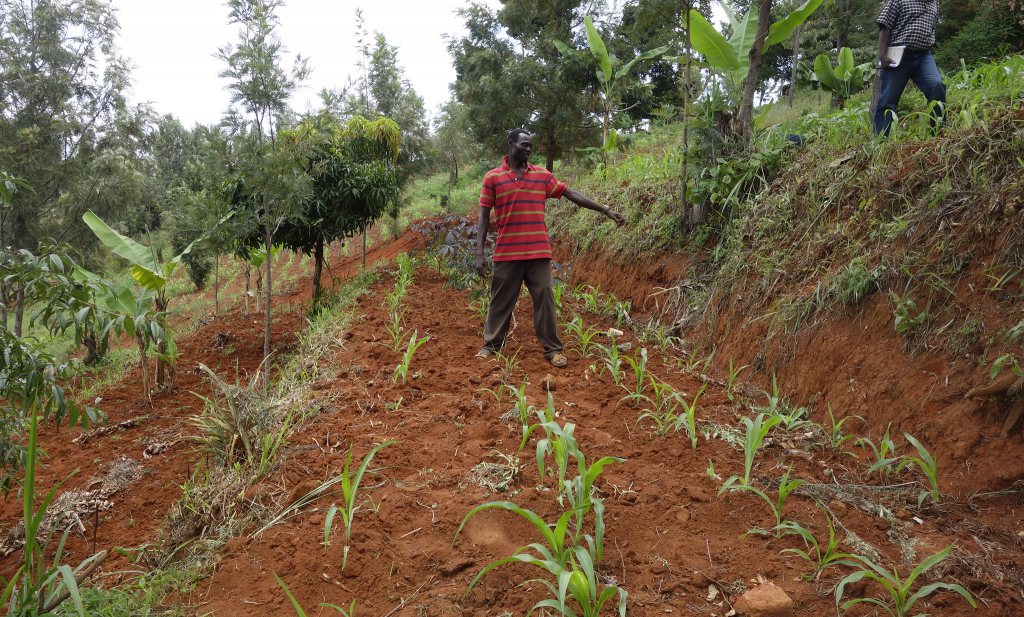In my few years of engaging and working with farmers, it is hard to meet farmers without a significant level of agricultural knowledge that has been relied upon for increased productivity. Most of the practices are hinged upon by indigenous agricultural knowledge.
However, such knowledge is hardly written down and improved upon, and only becomes obsolete or not used when there is proven and superior knowledge that gives better results. Most importantly, this superior and proven knowledge must be from a reliable person or people (this is more applicable to smallholder farmers) for it to be taken up or adopted. And the continuous usage must be aligned to local and cultural contexts for its continuous adoption, this is one distinct feature that makes indigenous knowledge a force to be reckoned with. of the practices are hinged upon by indigenous agricultural knowledge. However, such knowledge is hardly written down and improved upon, and only becomes obsolete or not used when there is proven and superior knowledge that gives better results. Most importantly, this superior and proven knowledge must be from a reliable person or people (this is more applicable to smallholder farmers) for it to be taken up or adopted. And the continuous usage must be aligned to local and cultural contexts for its continuous adoption, this is one distinct feature that makes indigenous knowledge a force to be reckoned with.
Indigenous agricultural knowledge is tested and proven practical practices that provide solutions to some specific challenges within the local environment of the farmers. They know when and where to use it, how to use it and how to measure its effectiveness and potential challenges. However, over the years, the knowledge might no longer be useful due to changes in farmers' reality which could be impacted by climate change such as increased pest infestation, irregular rain pattern amongst others, which render some of these practices less effective or unreliable. But most of these new challenges can be tackled effectively by improving the indigenous knowledge. Therefore, it is important we document our indigenous knowledge, identifying its strengths and weaknesses, improving its practices through scientific research and identifying its limitations. Such knowledge is easily transferred and adopted by farmers as it has ingredients of local context (culturally acceptable).
Therefore, we need to invest more in agriculture research and development (R&D) focusing on improving indigenous knowledge in tackling some of the lingering issues (especially climate change) and also productivity challenges at the primary level. Interestingly, indigenous agricultural knowledge can be scaled to global reach as some good agricultural practices we currently adopt for some enterprises (crops or livestock) were once indigenous knowledge to a particular people or communities which later scaled through years of improvement. We should never abandon our indigenous knowledge such as forecasting rainfall, reducing postharvest losses, pest controls, early warning of dry spell amongst others. We need to properly document these knowledge and processes. And at the same time, improving these processes to meet the changing dynamics of our environment and our farmers’ needs.
Truly, knowledge is power but appropriate knowledge that meets changing needs will influence the type of power that one possesses. So, let us power the future of food and it starts from the grassroots.
Yours-in-Service
Babatunde
Indigenous agricultural knowledge is tested and proven practical practices that provide solutions to some specific challenges within the local environment of the farmers. They know when and where to use it, how to use it and how to measure its effectiveness and potential challenges. However, over the years, the knowledge might no longer be useful due to changes in farmers' reality which could be impacted by climate change such as increased pest infestation, irregular rain pattern amongst others, which render some of these practices less effective or unreliable. But most of these new challenges can be tackled effectively by improving the indigenous knowledge. Therefore, it is important we document our indigenous knowledge, identifying its strengths and weaknesses, improving its practices through scientific research and identifying its limitations. Such knowledge is easily transferred and adopted by farmers as it has ingredients of local context (culturally acceptable).
Therefore, we need to invest more in agriculture research and development (R&D) focusing on improving indigenous knowledge in tackling some of the lingering issues (especially climate change) and also productivity challenges at the primary level. Interestingly, indigenous agricultural knowledge can be scaled to global reach as some good agricultural practices we currently adopt for some enterprises (crops or livestock) were once indigenous knowledge to a particular people or communities which later scaled through years of improvement. We should never abandon our indigenous knowledge such as forecasting rainfall, reducing postharvest losses, pest controls, early warning of dry spell amongst others. We need to properly document these knowledge and processes. And at the same time, improving these processes to meet the changing dynamics of our environment and our farmers’ needs.
Truly, knowledge is power but appropriate knowledge that meets changing needs will influence the type of power that one possesses. So, let us power the future of food and it starts from the grassroots.
Yours-in-Service
Babatunde
Related



